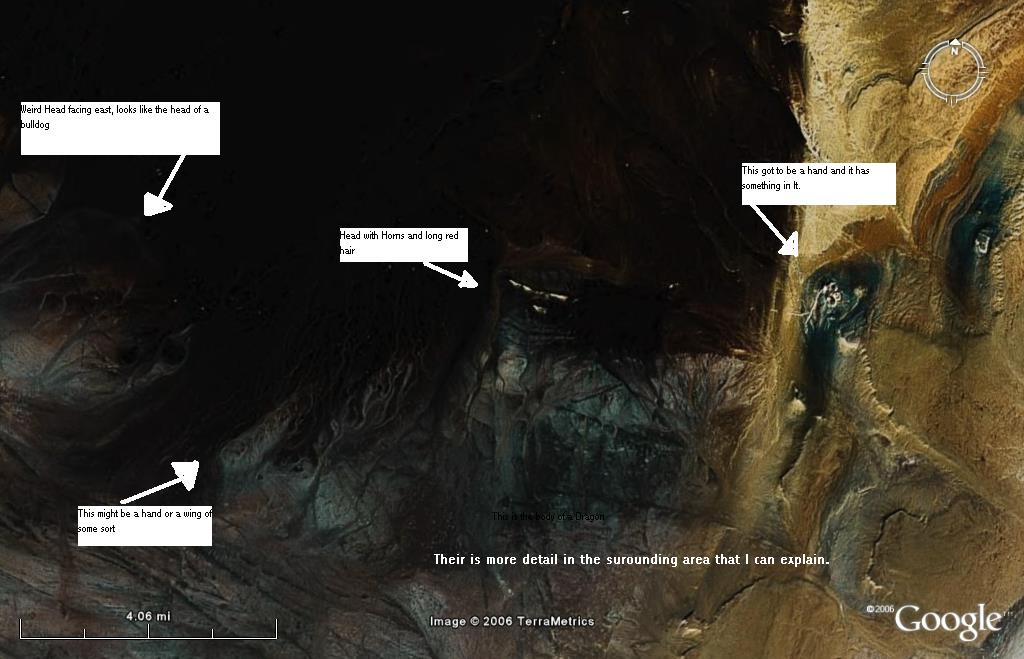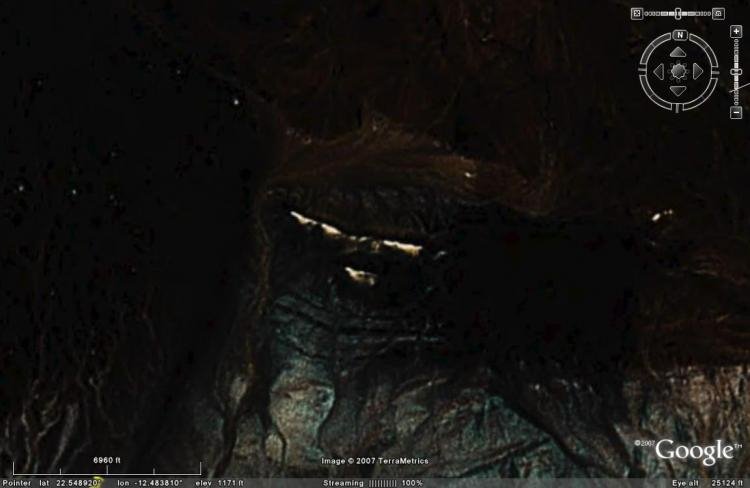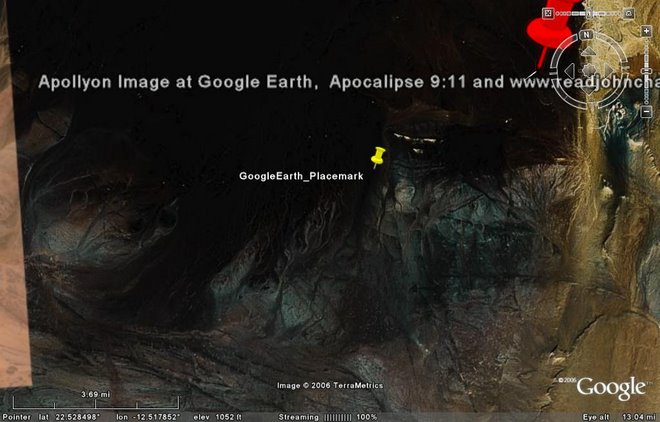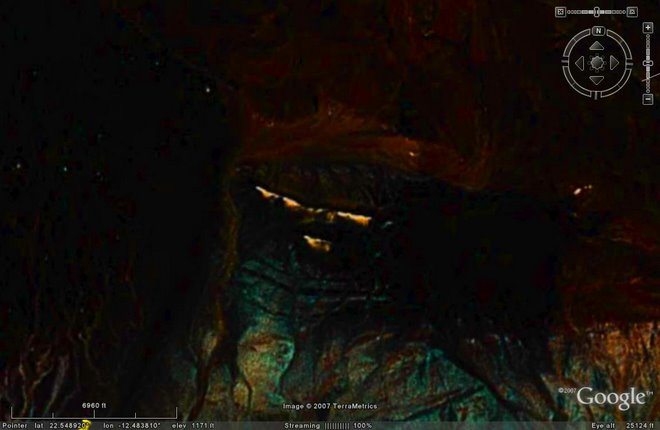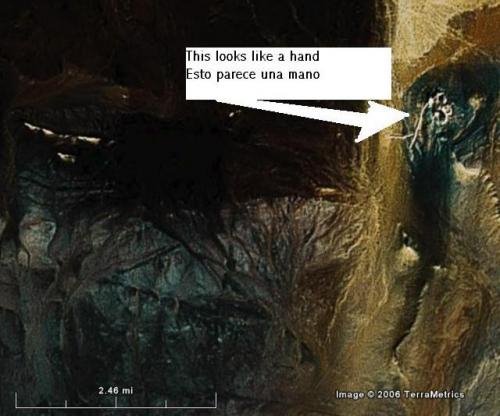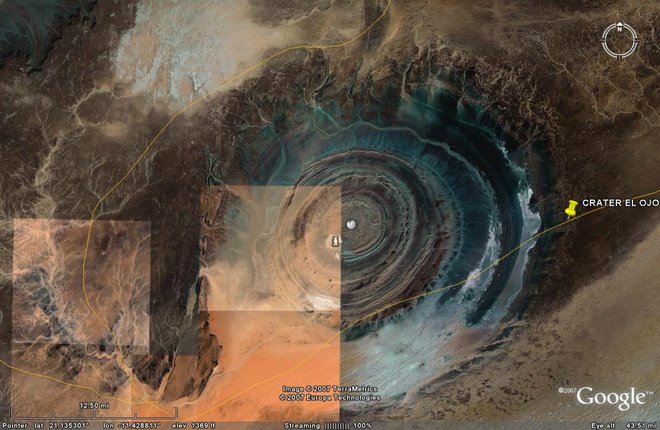Slavery still exists in Mauritania | Reuters
By Pascal Fletcher
NOUAKCHOTT (Reuters) - They do not wear chains, nor are they branded with the mark of their masters, but slaves still exist in Mauritania.
In the Saharan Islamic state, a centuries-old system of bondage is resisting the rise of democracy in the largely desert former French colony.
Herding camels or goats out in the sun-blasted dunes of the Sahara, or serving hot mint tea to guests in the richly carpeted villas of Nouakchott, Mauritanian slaves serve their masters and are passed on as family chattels from generation to generation.
They may number thousands, anti-slavery activists say. A shocking anomaly in the 21st century, this is widely accepted in a racially diverse, hierarchical society dominated by a Moorish elite and a brand of Islam that preaches submission.
"It's like having sheep or goats. If a woman is a slave, her descendants are slaves," said Boubacar Messaoud, who was born a slave and is now his country's leading anti-slavery campaigner.
He says a 1981 decree outlawing slavery is a dead letter and slavery is alive in Mauritania, with all its manifestations of non-paid work, punishment, forced sex and other abuses.
Mauritania's military rulers, who are handing over to civilian rule in democratic elections, shy away from discussing the issue and prefer to talk of "vestiges of slavery".
Some members of the light-skinned elite which has traditionally ruled the country deny slavery exists at all. Questions about it can draw anger, mistrust and silence.
But anti-slavery campaigners say the master-slave relationship and its social repercussions are branded into the minds of all Mauritanians, just as class-consciousness still haunts social discourse in Britain and other European states.
"There is slavery in our country, in all of our society. You need laws to eliminate it. The fact people try to hide what exists just complicates things," said Messaoud Ould Boulkheir, a black Mauritanian and descendant of slaves.
"It doesn't have to have chains to be there," added Boulkheir, who ran for the presidency in an election this month, finishing fourth out of 19 candidates.
"BORN A SLAVE"
In Nouakchott's sprawling, dirt-poor slums, most of whose inhabitants are black, the testimonies about enduring slavery are repeated, and heartfelt.
"Yes, it's true," said Abdarahman Ould Mohamed Abd, 52, a street vendor sitting outside his ramshackle hut. "In the interior of the country, it's the worst. You see it in the way some people treat others. Sometimes, they (the masters) have even killed children," he added.
His own surname means "son of Mohamed Slave" as "Abd" is the Arabic word for slave.
"It comes from a long way back. But it should end," he said.
Anti-slavery groups, such as SOS-Slaves run by Messaoud, say the fear and secrecy cloaking the issue make it difficult to bring cases of slavery to light, let alone to court.
But victims periodically surface, such as Matalla, a black Mauritanian who two years ago escaped from members of a Berber warrior tribe, the Reguibat. They were holding him and his family in the isolated deserts of northeast Mauritania.
"I was born a slave. All my family, all my ancestors were slaves of that group. My aunt, my brothers are still slaves with them," he said with lowered gaze.
He told Reuters he herded camels for his masters, ate only leftovers from their table and suffered occasional beatings.
"I have a scar here," he said, pointing to his right cheekbone, "from where they hit me with a stick".
Asked how many slaves his masters had he answered: "There are more than can be counted".
Anti-slavery activists say it is impossible to tell how many people remain enslaved in Mauritania, a mineral-rich country twice the size of France whose 3 million population mixes white and black Moors and black Mauritanians of several ethnic groups.
Diplomats in Nouakchott say the outgoing junta declined an offer from the European Union to fund an investigative study.
"It's probably fairly widespread. In the houses of the Moors, you see young black boys serving tea. I don't know what their work contracts are but I would not like to have theirs," said one diplomat, who asked not to be named.
"POLITICS OF DOMINATION"
He said Mauritania's new president, to be elected in a March 25 run-off between two white Moor frontrunners, would have to tackle slavery and enduring social and racial inequality: "It's at the heart of this country's imbalances."
Historians say slavery developed in Mauritania from the 7th century, when Arab invaders pushed south into Sub-Saharan Africa, bringing their Islamic religion which explicitly allowed the enslavement of non-believers.
This blossomed into a Trans-Saharan Slave Trade that captured black Africans several centuries before the peak of the European-run Atlantic Slave Trade. Some historians argue the practice of slavery already existed in black Africa.
This religious sanctioning of slavery -- and the establishment of Arabicised Berber ruling castes whose wealth was partially based on it -- has marked Mauritanian society.
"There is a racial policy here ... It's the politics of domination," said Boulkheir, adding that Islamic law and succession rights guaranteed the perpetuation of slavery, passing on ownership from master to son.
He said the 1981 ban "doesn't exist" in practice. "It gives the right of compensation to the master," he added.
"The state has never prosecuted anyone. We need a law that criminalizes slavery," Messaoud said.
The activists said they had asked the outgoing junta head, Col. Ely Ould Mohamed Vall, to include a prohibition of slavery in the constitution, but he rejected the idea.
Slavery was so engrained in Mauritania's society that it had even crossed racial and social barriers, they said.
"There are white slaves. There are blacks with black slaves. There are even freed slaves who have slaves," Boulkheir said.
He said many Mauritanians remained "slaves in their heads" even after freedom.
Asked if he forgave his former masters, Matalla shook his head: "No ... they are bad people."
(Additional reporting by Ibrahima Sylla)
© Reuters 2007. All rights reserved.
